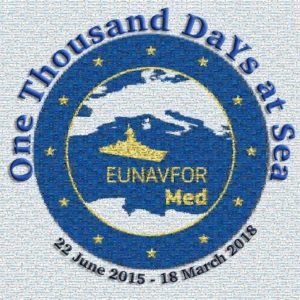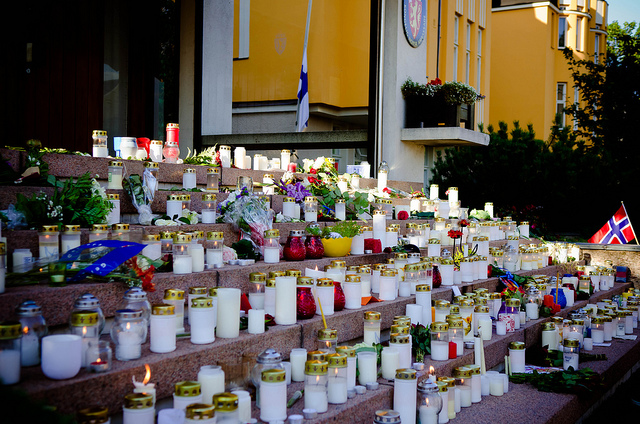Off Libya, has Europe changed its position?
 (B2) The whole Open Arms affair may appear at first sight as a simple episode of a rescue operation at sea which was a bit arduous, with mutual incomprehension (read: Open Arms Sea Relief Operation. Have all the rules been followed?). But behind this event is a real change in the European position.
(B2) The whole Open Arms affair may appear at first sight as a simple episode of a rescue operation at sea which was a bit arduous, with mutual incomprehension (read: Open Arms Sea Relief Operation. Have all the rules been followed?). But behind this event is a real change in the European position.
Has the EU changed its position?
Officially, no. In fact, yes. We asked the question at the midday briefing on Tuesday, March 20. Which caused a rather long 'blank'. Then a long consultation between the various spokespersons concerned to lead to an absence of an official position. In fact, the European position is that of... Italy. In several official meetings, the Europeans welcomed the Italian position, particularly in its agreements with Libya, and supported it. And this even appears in the conclusions of the European Council (1).
What does the Italian code of conduct say?
The Europeans highlight the code of conduct, imposed this summer 2017 by the Italians on NGOs to continue to be authorized to save migrants in the Mediterranean. Proactiva Open Arms was among the first NGOs to agree to sign this code. It stipulates the prohibition to enter Libyan territorial waters, not to cut ferries or make light signals, not to make transhipments except in an emergency, not to obstruct the operations of the Libyan Coast Guard, receive judicial police officers on board, declare its sources of financing, etc. (read : The code of conduct for rescue in the Mediterranean Sea)
Who decided on the receivership? Who is he really?
The sequestration of the boat was decided by the prosecutor of Catania (Sicily), Carmelo Zuccaro, who had been at the origin of accusations of complicity in the smuggling of migrants targeting NGOs in 2017. This had provoked, in particular, parliamentary inquiry committees. They then concluded that there was no evidence. On the other hand, in a tense political atmosphere in Italy, this had led to the development of a code of conduct, a kind of virtuous screen vis-à-vis public opinion. (read : NGOs complicit in smugglers in the Mediterranean: the file that caused pschitt?)
Conclusion: a tactical and political change
The European authorities are somewhat surfing with the truth. They don't quite say everything for a simple reason.
A silent operational tool
Even if the European Union has two operations, which are hierarchically attached to it in the area: Operation EUNAVFOR Med (Sophia) and Operation Thémis (alias Triton) of Frontex, it does not really have control over the situation operational. On the other hand, and above all, it shares, more or less explicitly, the Italian idea of containing migrants. The objective is, at the same time, to keep the migrants in Libya ashore, to prevent them from setting sail, if possible, and if not to recover them as quickly as possible.
The end of the principle of automatic repatriation to Italy
The Italians, who since 2015 had tacitly extended their relief zone and the coordination of relief to the limit of Libyan territorial waters, no longer want to do so, and no more want to others do. The repatriation to Italy of shipwrecked people recovered in the Italian rescue zone (or off it) which was the principle up to now is no longer the rule. Repatriation will follow the rules in force at international level: i.e. the nearest, safest port (in terms of receiving shipwrecked persons) or the port of the flag state or another port of a country ready to welcome refugees.
The reception of refugees is no longer desired
The very principle of the reception of the right of asylum is discreetly undermined. Italy, for lack of more expressive European solidarity, no longer willing to take on alone the reception of refugees and migrants. This is also the meaning of the modification of the operation plan (OpPlan) of the Frontex operation in the area, — Operation Triton being renamed Themis for the occasion. According to the information that has come back to us, the area has been redefined, further north (therefore less close to the Libyan coast), and further east (towards Albania). It is the whole relief operation which is thus annihilated.
(NGV)
(1) In particular on October 19, 2017 when the EU “ recalls the importance of cooperating with the Libyan authorities and all of Libya's neighbors in order to build capacity in border management ". Read : Migrations: the 28 want to prioritize Africa

